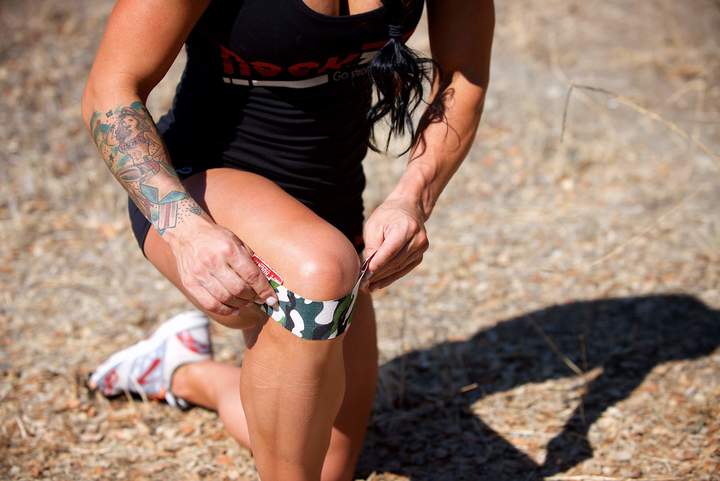The knee is the largest joint in the body and one of the most easily injured. Whether it’s a niggly discomfort* from repetitive pressure, or something more severe during high impact sports, knee injuries are all too familiar in both competitive and recreational sport.
 The knee is particularly vulnerable during high impact sports or activities which involve sharp pivots and quick changes in direction. Symptoms such as swelling, discomfort* and stiffness can all lead to a frustrating stint on the side-lines. Injuries such as ligament and tendon damage have been early season enders for elite athletes in all types of sport. Unfortunately, healthcare providers are not always effective at diagnosing knee problems correctly, so it is important to seek the best advice when suffering to get a quick and accurate diagnosis.
The knee is particularly vulnerable during high impact sports or activities which involve sharp pivots and quick changes in direction. Symptoms such as swelling, discomfort* and stiffness can all lead to a frustrating stint on the side-lines. Injuries such as ligament and tendon damage have been early season enders for elite athletes in all types of sport. Unfortunately, healthcare providers are not always effective at diagnosing knee problems correctly, so it is important to seek the best advice when suffering to get a quick and accurate diagnosis.
Our FMT qualified RockTape medical professionals are on hand to give you expert advice on how you can use RockTape to help prevent knee problems. RockTape can also be used to reduce discomfort* and swelling around the knee, as well as aiding recovery to get you back on track as quickly as possible. You can find a medical professional near you and get the support you need right away.
 RockTape also has a number of YouTube tutorials which easily explain some techniques and applications which you can use at home. Our tutorials will help support some of the discomfort* points which put a halt on you making the progress you deserve.
RockTape also has a number of YouTube tutorials which easily explain some techniques and applications which you can use at home. Our tutorials will help support some of the discomfort* points which put a halt on you making the progress you deserve.
The medial collateral ligament (MCL) is often the cause of discomfort* coming from inside of the knee. The MCL connects the thigh and shin bone and can often be sprained as result of twisting the knee or from the impact of an opponent during contact sports. Hear from our founder, Greg Van Den Dries, on how to tape for a medial knee injury.
Pain can be experienced in the lateral collateral ligament (LCL), which runs along the side of the knee joint. Damage to the LCL is likely to be caused by force to the inside of the knee, forcing pressure on the ligaments on the outside. Swelling and stiffness in the outside of the joint often point towards an LCL sprain or tear.
Runners experiencing knee problems are likely to stem from two types of discomfort*: patellar tendonitis and patellofemoral discomfort*. These two varieties often start of as a slight annoyance, but gradually increase in discomfort* as the knee is subject to repeated pressure over time—the end result leading to it being difficult to run or even walk on. Some straightforward advice on how to strap patellar tendonosis and patellofemoral discomfort* can provide some well needed respite for runners everywhere.
Our RockTape Assassins, our competition grade knee sleeve are masterfully engineered to help you smash your workout. Designed with athletes in mind, Assassins ensure proper stability and tracking of the knee, helping you squeeze out those final reps and power through your workout.
